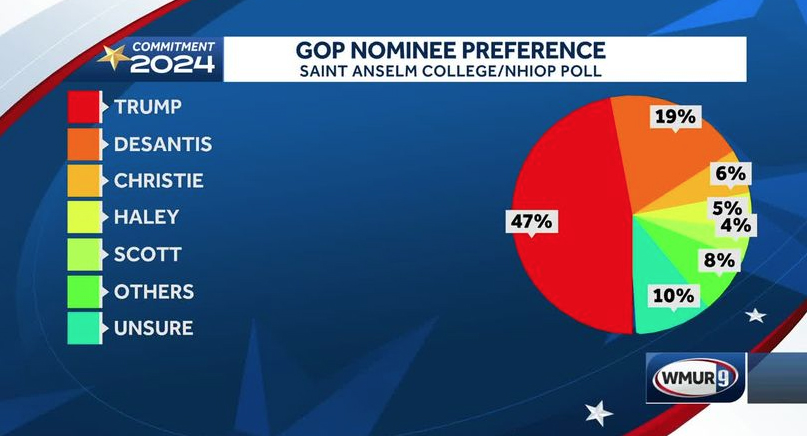By Jim Ellis — Tuesday, Sept. 5, 2023
Senate
Montana: Rep. Rosendale Leads GOP Primary Poll — A J.L. Partners survey released to the Semafor online news site (Aug. 12-17; 418 likely Montana Republican primary voters; live interview) projects two-term Congressman Matt Rosendale (R-Glendive) holding a big 55-19 percent lead over aerospace company CEO and retired Navy SEAL Tim Sheehy (R).Sheehy is the party-endorsed candidate. He has support from Sen. Steve Daines (R-MT), chairman of the National Republican Senatorial Committee, Gov. Greg Gianforte (R-MT), and 1st District Congressman and former US Interior Secretary Ryan Zinke (R-Whitefish).
Both men fare well against Sen. Jon Tester (D). Rep. Rosendale, who lost to Sen. Tester 50-47 percent in 2018, would lead this race 46-42 percent. Sheehy would hold a similar 46-43 percent edge over the senator.
Michigan: Ex-US Rep Files Senate Exploratory Committee — Former Congressman Peter Meijer, who was elected in 2018 but failed to win renomination for a second term in the 2020 Republican primary, has filed a US Senate exploratory committee with the Federal Election Commission. Meijer, however, came far short of saying he would enter the Senate race, only that he remains in a consideration phase.
Former Congressman Mike Rogers (R) is soon expected to enter the Senate race. Michigan Board of Education member Nikki Snyder is the only Republican elected official who has joined the Senate field. Rep. Elissa Slotkin (D-Lansing) leads a host of candidates for the Democratic nomination. Sen. Debbie Stabenow (D) is retiring after serving what will be four terms at the end of this Congress.
House
NY-3: Another Republican to Challenge Rep. Santos — The Security Traders Association CEO, Jim Toes, announced that he will join the growing Republican field who are challenging beleaguered Rep. George Santos (R-Long Island) for renomination. Toes becomes the eighth announced Republican candidate, but possibly the most accomplished. A total of six Democrats have declared their candidacies.
The FiveThirtyEight data organization rates NY-3 as D+4, while Dave’s Redistricting App calculates the partisan lean at 56.4D – 42.0R. President Joe Biden carried the district 54-45 percent. This is one of several New York US House seats that will be difficult for the Republicans to protect in the 2024 election.
NC-14: 2022 Nominee Likely to Return — Afghan War veteran and 2022 Republican congressional nominee Pat Harrigan (R) is likely to return for another attempt, though the Charlotte anchored 14th District will likely be radically different after the legislature redraws the North Carolina congressional map in the next few weeks.
The redraw will play to the Republicans favor, which likely means that freshman incumbent Rep. Jeff Jackson (D-Charlotte) will run for attorney general. This would be good news for Harrigan, but his more difficult election would be in the Republican primary particularly if state House Speaker Tim Moore (R-Cleveland County) draws the seat for himself.






 The early media time reservations are invested in five states: Arizona, Colorado, Iowa, Maine, and North Carolina. This is certainly not the limit of the SMP planned expenditures, nor is the organization likely committed to fulfilling the entirety of this time buy without having negotiated an escape clause. All depends upon their agreements with the individual television outlets and does not include any future expenditure the group may make for radio and digital advertising.
The early media time reservations are invested in five states: Arizona, Colorado, Iowa, Maine, and North Carolina. This is certainly not the limit of the SMP planned expenditures, nor is the organization likely committed to fulfilling the entirety of this time buy without having negotiated an escape clause. All depends upon their agreements with the individual television outlets and does not include any future expenditure the group may make for radio and digital advertising.